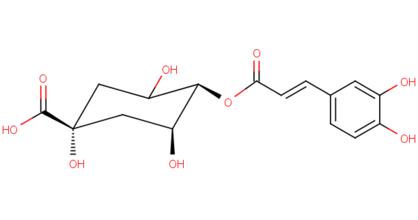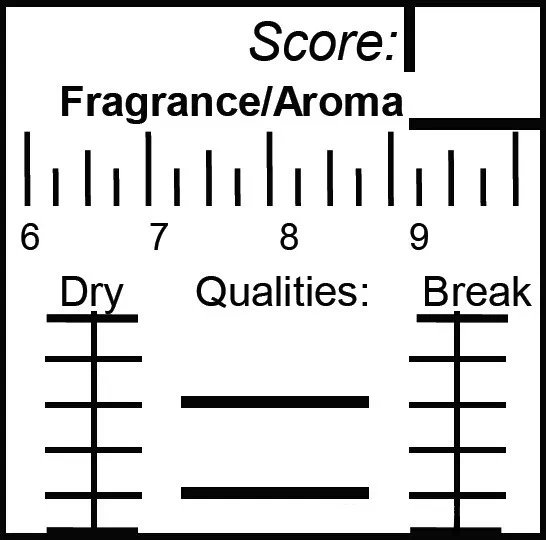What is decaf and decaf? Introduction of decaffeinated coffee and excessive dehydration of coffee
Many Americans are experimenting with decaffeinated coffee in the hope of getting a "perfect" cup of coffee that tastes only coffee but does not stimulate the nervous system. But is decaffeinated coffee really decaffeinated? What's the difference between "decaffeinated" and "natural decaffeinated"? Is it absolutely safe to remove caffeine from coffee? Before you know what your decaffeinated coffee is, you first need to understand that there is nothing in it. FDA's standard for decaffeinated coffee is that 97% of the original caffeine in coffee must be extracted from beans. So, yes, decaffeinated coffee still contains caffeine. But it's not much, is it? The amount of caffeine varies greatly from bean to bean.
In the United States, there are roughly two kinds of beans in circulation on the market-the tenacious Robusta coffee beans and the subtle Arabica beans. Robusta beans generally contain two to three times as much caffeine as Arabica beans, and their astringency is often considered inferior. Instant coffee brands Folgers and Maxwell Coffee are often made from Robusta mixed bean extract, while Caribou and Starbucks have long insisted on using 100% Arabica beans. Robota beans leave more caffeine after decaffeination than Arabica beans, and need to remove 97% of the caffeine to meet FDA standards. FDA does not specify the exact caffeine content of decaffeinated coffee products. If you are looking for decaffeinated coffee, you should first pay attention to the type of coffee beans you choose. A 12-ounce cup of decaffeinated coffee-a Starbucks mug-usually contains 3 to 18 milligrams of caffeine. By comparison, an 8.4-ounce can of Red Bull contains 80 milligrams of caffeine. The average level of caffeine in coffee can vary widely, usually between 140 and 300 grams. In 2007, the Consumer report conducted a survey of decaf and regular coffee sampled from popular coffee shop chains. Although most chain stores have less than 5 milligrams of decaf per cup, Downdole, for example, has as much as 32 milligrams, while another of the best cafes in Seattle has a caffeine content of 29 milligrams-not the best choice for decaffeinated coffee. Among these samples, McDonald's has the lowest content of decaf. Nutritionist MariaBella, who runs the highly balanced Nutrition, weight Management and healthy Diet Counseling Center in New York City, says people who are sensitive to caffeine will feel nervous about their caffeine intake, and it may be affected by other factors, such as diet and daily schedule. She stressed that there is no such thing as decaffeinated coffee. "drinks that are not caffeinated can be considered 'decaffeinated', such as coffee and herbal tea, which should not be labeled as caffeinated," she said. " So how do you get completely decaffeinated coffee? Caffeine removal from green raw coffee beans requires many different processes, and each step affects the roasting process and how long the coffee stays fresh before it is roasted. Decaffeinated coffee spoils almost twice as fast as regular coffee.
The earliest decaffeinated method was developed in the early 1900s, using repeated cleaning and assisted by organic benzene. But this method was no longer used to make decaffeinated coffee because it was later identified as a carcinogen.
Today, like experienced winemakers, coffee bean processors are starting to use different decaffeinated methods to get the best taste and quality of coffee. Many brands of coffee directly use chemical methods, which also involve chloromethane. The other two methods are natural processes, using the plant hormone ethyl acetate or carbon dioxide or direct washing process. The last method of washing does not use any chemicals, but simply uses water. The process of using carbon dioxide and washing in the process, initiated by SWISSWATER ®, is considered to be the most natural decontamination process and the only organic authentication method at present. Although organic coffee is becoming more and more popular, it is still difficult to find in most supermarkets. Chloromethane, a chemical directly used in the decontamination process of raw coffee beans, is listed as a possible carcinogen by the National Cancer Institute, but FDA considers the content of 10ppm (ppm) as a safe intake.
Trace amounts of the chemical were found in decaffeinated coffee drinks, but most of the mixed concentrations were at or below 1ppm. LorenzoPerkins, vice president of the American boutique coffee association, certified Grade 2 barista and founder of CuveeCoffee in Austin, Texas, who has been in the coffee industry for 13 years, says the lack of chloromethane in decaf coffee attracts little attention. When he saw all this, he said, "Chloromethane is the least likely to affect the original taste of coffee, because it is also a chemical bond of caffeine alkaloids, which peels off other organic substances and even achieves the desired taste of coffee." Nevertheless, coffee producers quickly felt that consumers were becoming more sensitive to additives. Starbucks uses methyl chloride to remove most of the caffeine from mixed beans.
Now, Sumatra, Indonesia offers a better "natural treatment" for decaffeinated coffee. Caribou Coffee uses water without chemicals to make decaffeinated coffee to ensure that there is no chemical residue from the process it uses. One last hint about decaffeination: studies have found that drinking regular coffee every day can reduce the incidence of high blood pressure, reduce bone density and stabilize stomach acidity balance. When switching to decaffeinated, coffee lovers who want to avoid insomnia should try drinking decaffeinated coffee. "because phytochemicals still remain in the decaffeinated process, long-term consumption of decaffeinated coffee may cause many health conditions," Bella said. Possible consequences of these residual chemicals include increased acidity of the stomach (heartburn or GERD), interference with mineral absorption (especially iron), and an increased incidence of rheumatoid arthritis. Caffeine intake of up to 400mg a day is considered a level suitable for most adults to maintain good health, Bella said.

Source: Beresta's blog
Important Notice :
前街咖啡 FrontStreet Coffee has moved to new addredd:
FrontStreet Coffee Address: 315,Donghua East Road,GuangZhou
Tel:020 38364473
- Prev

SCAA Emma Bladyka chlorogenic acid: the importance of chemical changes in chemistry and reality baking
What are they? Many plants contain chlorogenic acid in addition to caffeine. Acids have this very similar structure in the Luyuan Group, and the composition of an ester usually includes caffeic acid and quinic acid as components. All chlorogenic acids belong to a larger class of phenolic acids. In nature, phenolic acids are usually used as defensive compounds by plants, or as a signaling mechanism between plants and soil microorganisms. they
- Next

Teach you how to use SCAA coffee cup meter coffee cup measurement and detailed analysis of coffee flavor wheel
Coffee Cupping, which is translated into Chinese for coffee cup test, cup taste or cup evaluation, is a very magical and simple method of coffee sensory evaluation. The quality of coffee is judged by the sense of taste, which is called coffee cup test. The person who evaluates it is called a coffee quality appraiser. Similar to wine tasting, when testing a cup, make the coffee flow back and forth in your mouth and make full use of your sense of taste and smell to feel the coffee.
Related
- What is the meaning of lactic acid fermentation with coffee bean treatment?
- How to judge the state of foam by sound?
- How does the latte pull out the unicorn pattern? Come to get for a little trick to improve the flower pull!
- Will flower pulling affect the taste of the latte?
- Do you know the history of coffee?
- The difference between honey treatment and sun washing what is raisin honey treatment?
- What kind of milk can a novice use to make coffee foam to keep the foam longer? The correct method and skills of milking tutorial sharing
- Why do washed coffee beans taste sour? Flavor characteristics of washed Coffee
- Introduction to the skill of how to practice the size and height of water injection around the circle of hand-brewed coffee
- How do beginners practice coffee flower drawing from scratch?

